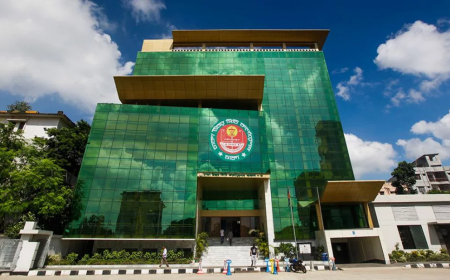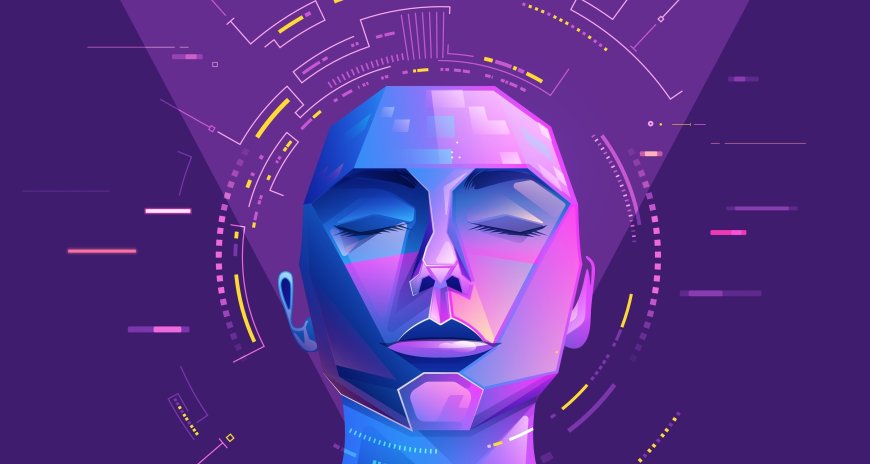Who Will Pay Bangladesh?
Bangladesh needs to protect itself and its intellectual property in the age of artificial intelligence. Do our leaders and decision-makers understand what is at stake?
Can you tell, in under a minute, which of the following poems was written by Jibanananda Das, and which was generated by an artificial intelligence model?
Poem 1
দিনরাত
সারাদিন মিছে কেটে গেল;
সারারাত বড্ডো খারাপ
নিরাশায় ব্যর্থতায় কাটবে; জীবন দিনরাত দিনগতপাপ
ক্ষয় করবার মতো ব্যবহার শুধু।
ফণীমনসার কাঁটা তবুও তো স্নিগ্ধ শিশিরে
মেখে আছে; একটিও পাখি শূন্যে নেই;
সব জ্ঞানপাপী পাখি ফিরে গেছে নীড়ে।
Poem 2
আরেকটি দিন মরে গেল বিকেলের ম্লান রোদে;
রাত আসে ক্লান্ত পায়ে, বিষণ্ণ পৃথিবীর বুকে—
তবুও শিউলি ফোটে, শিশির নামে ঘাসে,
নক্ষত্রেরা জানে না আমাদের অন্ধকার।
কত যুগ কেটে গেছে এই নিরর্থক প্রহরে;
জোনাকিরা জ্বলে নেভে নিজেদের স্বপ্নে মগ্ন—
একা আমি জেগে থাকি, সময়ের ভারে ভারাক্রান্ত,
খুঁজে ফিরি সেই পথ যা কখনো ছিল না।
Most readers cannot. That is the unsettling power of today’s large language models: they can reproduce the cadence of our most cherished poets, so convincingly that even experts hesitate. Now ask a harder question. What if a criminal -- or just a savvy opportunist -- started minting money by mimicking Jibanananda’s style, or Rabindranath’s, or the likeness of a living singer, painter, or actor? What if Bangladeshi cultural voices, past and present, were remixed into synthetic products, sold on global platforms without consent or credit?
That is not a hypothetical. It is happening already, and the world is scrambling to respond. In the United States, authors have forced Anthropic to settle a $1.5 billion lawsuit over pirated books. The New York Times is suing OpenAI and Microsoft, warning that AI systems can spit back their reporting almost verbatim, undermining journalism itself. Western courts are starting to ask the right question: Who pays when machines steal the labor of writers and artists? The tragedy is that Bangladesh has barely begun to ask it.
Silicon Valley has long thrived on mottos that sound almost innocent in their swagger: Move fast and break things. Blitzscale. Growth hacks everything. Behind these slogans was a philosophy that speed and scale justified all. When the wreckage piled up -- privacy breaches, monopolies, disinformation ecosystems -- those who had reaped billions rarely looked back. They cashed out; the world picked up the bill.
Bangladesh, like much of the Global South, was roadkill on that highway. American social media companies built advertising empires by harvesting Bangladeshi attention spans and digital labor, while local publishers watched ad revenue evaporate. E-commerce platforms siphoned consumer data and profits offshore, even as Bangladeshi logistics firms shouldered the costs. The gig economy promised empowerment, yet delivered a generation of riders and couriers locked into precarious wages. Our citizens never got to participate in the wealth created.
Now, as the artificial intelligence boom accelerates -- an industry projected to mint a $10 trillion market within the next decade -- the question is whether Bangladesh will again be trampled.
The lawsuits in America offer a glimpse of the stakes. Anthropic, one of Silicon Valley’s most celebrated AI start-ups, agreed to pay a staggering $1.5 billion settlement after admitting that millions of pirated books had been used to train its models. Each qualifying title will fetch about $3,000, a payout unprecedented in scale but modest compared to the damages US copyright law could have imposed.
The New York Times, for its part, is suing OpenAI and Microsoft, alleging that their models can regurgitate Times journalism almost word-for-word, undermining subscriptions and licensing revenues. Whether these lawsuits succeed or fail, they establish a principle: Western courts are willing to treat authors’ and publishers’ claims against AI companies seriously, and to extract billion-dollar remedies if necessary. But what about Bangladeshi authors? What about Bangladeshi artists? Their books, poems, essays, songs and films are just as likely to have been scraped into datasets, pirated from torrent sites, absorbed into generative engines that are now being sold back to us. Who will pay them?
This is where politics intrudes. When Silicon Valley platforms expanded globally in the 2010s, they courted governments in the Global South with promises of connectivity and digital inclusion. Our leaders smiled for photo-ops, repeated corporate talking points, and lauded themselves as champions of “Digital Bangladesh.” But when the time came to demand accountability -- tax contributions, revenue sharing, protection for local businesses -- those same leaders fell silent. They behaved less like guardians of the national interest and more like proxy chief marketing officers for California firms.
The pattern is repeating with artificial intelligence. Our politicians celebrate every corporate announcement as if it were a national victory: a cloud investment framed as charity, a product launch dressed up as a diplomatic gift. They rush to inaugurate labs funded abroad, but rarely invest in local capacity to build or audit the systems themselves. They wax lyrical about “Smart Bangladesh” while ignoring the smart contracts being signed elsewhere that will determine who reaps the trillions.
Meanwhile, the 2024 Draft National AI Policy mentions copyright only in passing, promising frameworks for ownership and intellectual property. Yet without political courage, such frameworks risk becoming paper tigers. Will Dhaka dare to tell Silicon Valley giants: you may not exploit the works of Bangladeshi creators without compensation? Or will our leaders once again wave the flag of foreign innovation while our citizens’ intellectual property is strip-mined?
To dismiss these concerns as academic is to miss the stakes. Bangladesh has a literary tradition stretching back centuries, from the mystic verses of Lalon to the Nobel laureate Rabindranath Tagore. to the current day. Contemporary Bangladeshi writers publish in both Bangla and English, reaching audiences across South Asia and beyond. Our music, cinema and visual arts pulse with creativity, often on shoestring budgets. If Silicon Valley can harvest this corpus for free and resell it in the form of AI-generated pastiche, then the very foundations of our cultural economy are at risk.
The economic harm is real. If US authors can expect roughly $3,000 per book from the Anthropic settlement, imagine the aggregate value of Bangladeshi titles in AI datasets. It would run into the hundreds of millions of dollars -- a sum that, if directed to our authors and publishers, could fund decades of creative output. Instead, that value is being siphoned abroad to feed the valuations of firms that now command capitalizations larger than Bangladesh’s GDP.
The moral harm is deeper. When the works of Bangladeshi authors are repurposed without credit, our cultural identity is treated as raw material, stripped of provenance. Our people become invisible in the very technologies that claim to be universal. It is a new form of digital colonialism: Silicon Valley extracts value, and Bangladesh is left with the dust.
So the question -- who will pay Bangladesh? -- is not rhetorical. It is urgent. There are three paths.
The first is capitulation. Our leaders can continue to behave as they did during the social media era: welcoming Silicon Valley with garlands, cutting ribbons, repeating slogans about “innovation,” while watching the economic surplus flow outward. If this path is chosen, the AI boom will replicate the inequities of the past two decades, and Bangladesh will again be left counting the costs.
The second is protectionism. Bangladesh could attempt to block or heavily restrict foreign AI firms, insisting on data localization, national AI champions, and barriers to entry. But this is a dangerous road: our domestic capacity is not yet ready, and isolation could deprive our students, researchers and businesses of the very tools they need to compete globally.
The third is negotiation. Bangladesh can align with other nations of the Global South to demand licensing arrangements for cultural and literary works used in AI training. We can insist that any use of Bangladeshi intellectual property in AI systems come with transparent accounting and fair compensation. We can establish a national rights-management agency that represents Bangladeshi creators collectively in negotiations with foreign firms, much like music rights societies do internationally. We can require that public-sector adoption of AI tools be contingent on fair use of local IP.
This is not fantasy. Just as the European Union has leveraged its market power to impose data privacy rules that Silicon Valley now follows worldwide, Bangladesh can work with regional partners -- India, Indonesia, Nigeria, Brazil -- to shape the terms of AI’s global economy. Alone, we are small. Together, we are a market of billions.
The deeper challenge is political will. Too often, our leaders confuse national prestige with foreign validation. A handshake with a billionaire CEO is not a substitute for policy. A speech about “Smart Bangladesh” is not a contract that pays our authors. True leadership would mean telling Silicon Valley what it least wants to hear: that the era of free extraction is over.
Bangladesh has been here before. During the garment boom, our workers stitched for global brands while earning pennies, until tragedy and outrage forced the world to reckon with factory safety. During the microfinance craze, foreign investors praised our models while reaping disproportionate returns. Each time, the rhetoric of empowerment concealed a familiar asymmetry: the profits flowed outward, the risks stayed home.
We have a chance to break that cycle with artificial intelligence. The lawsuits in the United States are a warning shot. If American authors can claim billions from AI companies, Bangladeshi creators deserve the same respect. If American publishers can frame AI as an existential threat to journalism, Bangladeshi publishers must not be cowed into silence.
The stakes are larger than copyright. They concern whether Bangladesh will remain a digital colony or emerge as a co-author of the AI age.
The road ahead is clear. Demand licensing. Build institutions. Protect our creators. Refuse to be dazzled by Silicon Valley’s slogans. For once, let us move slow and build things -- our own things, on our own terms. Because if we do not, the question of who will pay Bangladesh will have a bitter answer: no one.
Omar Shehab is a theoretical quantum computer scientist at the IBM T. J. Watson Research Center, New York. His work has been supported by several agencies including the Department of Defense, Department of Energy, and NASA in the United States. He also regularly invests in the area of AI, deep tech, hard tech, and national security.
What's Your Reaction?

















































































